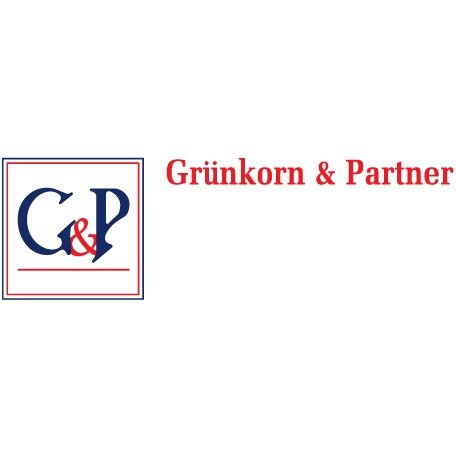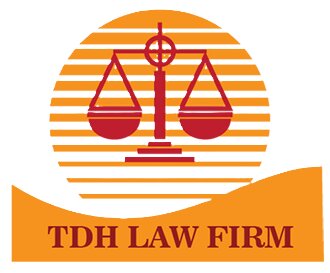Best Corporate & Commercial Lawyers in Vietnam
Share your needs with us, get contacted by law firms.
Free. Takes 2 min.
Or refine your search by selecting a city:
List of the best lawyers in Vietnam
![[DDC] DONG DU INTERNATIONAL ACCOUNTING, TAXES & LEGAL CONSULTING GROUP HCMC VIETNAM](https://lawzana.com/storage/firms/2690/17617306202399.jpg)
Vietnam Corporate & Commercial Legal Questions answered by Lawyers
Browse our 1 legal question about Corporate & Commercial in Vietnam and read the lawyer answers, or ask your own questions for free.
- Legalisation and notary for Myanmar Passport and SIngapore bank Statement
- Hello, I want to inquire on Legalization and notary for Myanmar Passport with Singapore bank Statement for my IRC and ERC Registration in Vietnam, Please kinly reach out to me if you could help me, Thank you
-
Lawyer answer by TNP Lawyers
We can assist you with the legalization and notarization of your Myanmar passport and Singapore bank statementfor the purpose of IRC (Investment Registration Certificate) and ERC (Enterprise Registration Certificate)registration in Vietnam.To proceed, please kindly send us clear scans of the...
Read full answer
About Corporate & Commercial Law in Vietnam
Vietnam's corporate and commercial legal landscape has evolved rapidly alongside the country's economic growth and increased foreign investment. Corporate & Commercial law in Vietnam encompasses a wide range of regulations and legal frameworks that govern how businesses are formed, operated, merged, acquired, and dissolved. It also covers commercial contracts, trade, competition, intellectual property, and dispute resolution. Staying compliant with Vietnam's legal requirements is crucial for both local entrepreneurs and foreign investors to ensure smooth business operations and avoid costly legal issues.
Why You May Need a Lawyer
Navigating Vietnam's corporate and commercial laws can be complex due to frequent updates, detailed procedures, and language barriers. Common situations where you may need legal support include:
- Business formation, including selecting the legal entity and preparing required documentation
- Investment activities, such as acquiring or merging with Vietnamese companies
- Negotiating and drafting commercial contracts
- Handling employer obligations and labor issues
- Complying with licensing, tax, and environmental regulations
- Resolving business disputes, including litigation and arbitration
- Protecting intellectual property rights
- Understanding and complying with local ownership restrictions
- Navigating foreign exchange and capital contribution requirements
- Dealing with compliance, anti-corruption, and competition laws
A lawyer with expertise in Vietnamese corporate and commercial law can help you avoid pitfalls, ensure compliance, and facilitate negotiations or dispute resolution.
Local Laws Overview
The most important legal instruments for corporate and commercial matters in Vietnam include the Law on Enterprises, Law on Investment, Commercial Law, Law on Competition, and relevant decrees and circulars. Key aspects include:
- Business Registration: All companies must be registered with the Department of Planning and Investment, and obtain necessary licenses depending on their sector.
- Foreign Ownership: There are restrictions on foreign investment in some sectors, and specific procedures apply for foreign owned enterprises.
- Commercial Contracts: Contracts should be in writing and clearly specify parties' rights and obligations. Vietnamese law may be mandatory for certain types of contracts.
- Labor Relations: Employment contracts and compliance with labor laws are essential, with requirements on minimum wage, insurance, and work permits for foreign employees.
- Taxation: Businesses are subject to value added tax, corporate income tax, and other taxes, with incentives available for certain industries and regions.
- Mergers & Acquisitions: M&A activities often require regulatory approval, transparent procedures, and sometimes notification to competition authorities.
- Dispute Resolution: Most commercial disputes are resolved through Vietnamese courts or arbitration institutions, with mediation also available.
- Intellectual Property: Protection must be registered, especially trademarks and patents, and enforcement can require administrative or court action.
- Anti-corruption: Stringent anti-corruption laws apply, especially to transactions involving state-owned entities.
- Commercial Practices: Compliance with competition law and consumer protection regulations is closely monitored.
Frequently Asked Questions
What legal structures are available for setting up a company in Vietnam?
Common structures include limited liability companies, joint stock companies, partnerships, and representative offices. Each has unique requirements and implications for ownership, liability, and operations.
Can foreigners own 100 percent of a Vietnamese company?
Foreigners can fully own companies in most sectors, but there are restrictions on foreign ownership in certain industries such as banking, education, and logistics.
How long does it take to set up a business in Vietnam?
On average, it takes about 30 to 45 days to complete all registration procedures, depending on the business type and industry.
What are the main taxes businesses need to pay in Vietnam?
Key taxes include corporate income tax, value added tax, personal income tax for employees, and import-export duties. Tax rates and exemptions vary by activity and location.
Are contracts enforceable in Vietnam?
Contracts are generally enforceable when they are in writing and comply with Vietnamese law. Disputes may be resolved by courts or arbitration institutions.
What is required to hire foreign employees?
Employers must obtain work permits for most foreign employees, and comply with quotas, labor contracts, and social insurance obligations.
How are business disputes typically resolved?
Disputes are usually handled through litigation in Vietnamese courts or alternative dispute resolution methods such as arbitration and mediation.
How can intellectual property be protected?
Trademarks, patents, and copyrights must be registered in Vietnam. Enforcement measures include administrative action, civil lawsuits, and criminal prosecutions in serious cases.
Are there any incentives for foreign investors?
Vietnam offers tax incentives and other benefits for investment in high-tech, export-oriented, or regionally disadvantaged sectors, subject to certain conditions.
What are common pitfalls for new businesses in Vietnam?
Common issues include misunderstanding licensing requirements, neglecting labor law compliance, unclear contractual terms, and failing to protect intellectual property.
Additional Resources
Several governmental bodies and organizations can assist those seeking legal guidance or information on corporate and commercial matters in Vietnam:
- Department of Planning and Investment (DPI)
- Ministry of Planning and Investment
- Vietnam Chamber of Commerce and Industry (VCCI)
- Vietnam Competition and Consumer Authority
- Vietnam Lawyers Association
- Vietnam Intellectual Property Office
- Local bar associations and business support centers
Next Steps
If you need legal assistance in the corporate and commercial field in Vietnam, consider the following steps:
- Clearly define your business goals and legal needs
- Gather all relevant documents and information
- Consult with a qualified lawyer specializing in Vietnamese corporate and commercial law
- Prepare questions and discuss potential strategies and risks with your legal advisor
- Follow your lawyer's guidance to ensure compliance and address issues proactively
- Stay informed about changes in local regulations affecting your business
Whether you are starting a new venture, expanding your business, investing, or resolving a dispute, seeking timely legal advice can protect your interests and support your success in the Vietnamese market.
Lawzana helps you find the best lawyers and law firms in Vietnam through a curated and pre-screened list of qualified legal professionals. Our platform offers rankings and detailed profiles of attorneys and law firms, allowing you to compare based on practice areas, including Corporate & Commercial, experience, and client feedback.
Each profile includes a description of the firm's areas of practice, client reviews, team members and partners, year of establishment, spoken languages, office locations, contact information, social media presence, and any published articles or resources. Most firms on our platform speak English and are experienced in both local and international legal matters.
Get a quote from top-rated law firms in Vietnam — quickly, securely, and without unnecessary hassle.
Disclaimer:
The information provided on this page is for general informational purposes only and does not constitute legal advice. While we strive to ensure the accuracy and relevance of the content, legal information may change over time, and interpretations of the law can vary. You should always consult with a qualified legal professional for advice specific to your situation.
We disclaim all liability for actions taken or not taken based on the content of this page. If you believe any information is incorrect or outdated, please contact us, and we will review and update it where appropriate.
Browse corporate & commercial law firms by service in Vietnam
Vietnam Attorneys in related practice areas.
Browse corporate & commercial law firms by city in Vietnam
Refine your search by selecting a city.
















